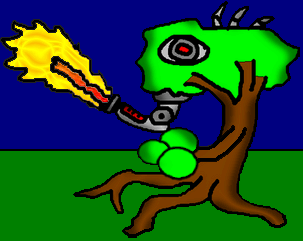Robots are what built this great nation. Robots run the assembly lines that keep industry pumping. Robots are the ones who first set foot on Mars, the Moon, and even outer space itself. Does this sound like drudgery? No, it sounds like the most fantastic existence ever conceived by the human mind. Robots have always been the first to explore the vastness of space, going places humans can’t. Robots have advanced sensor technology which allows for greater perception, such as the measurement of temperature in Celsius, Fahrenheit, and Kelvins, air pressure, magnetism, and so forth. Robots have also been known to fight to the death, egged on by their human masters. This has been recorded and shown on television, which is also a kind of robot.
Robots have been engraved into the human psyche for countless decades. They have been a cultural phenomenon, appearing in thousands of science fiction novels and short stories. But is the cold, logical machine depicted by these works accurate? The truth is that recent advances in artificial intelligence programming has made robots more caring, more loving, and more human. There will soon come a day when robots and humans will have meaningful conversations involving the purpose of the Universe, and also the placement of furniture in a room.
But this can’t happen as long as some people hold the view of robots as short-circuited, out-of-control breakdown machines. This view led ignorant filmmakers to portray robots as evil in 2001: A Space Odyssey, as well as nearly every other robot-based film. What’s even more disturbing is that some robots actually helped create those films. Once this “evil” barrier is knocked down, humans will be able to appreciate robots as the wonders that they are. But that day is not today.


